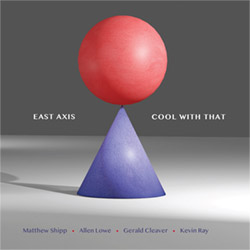
A definitive album of modern creative jazz and free improvisation, from confident lyrical exchanges to creative interaction and rock solid foundations from a bedrock rhythm section, heard in these studio recordings from the New York quartet of Matthew Shipp on piano, Allen Lowe on alto & tenor saxophones, Gerald Cleaver on drums and Kevin Ray on bass.
Out of Stock
Quantity in Basket: None
Log In to use our Wish List
Shipping Weight: 3.00 units
Sample The Album:
Matthew Shipp-piano
Allen Lowe-alto saxophone, tenor saxophone
Gerald Cleaver-drums
Kevin Ray-bass
Click an artist name above to see in-stock items for that artist.
UPC: 825481506427
Label: ESP-Disk
Catalog ID: ESPDISK 5064CD
Squidco Product Code: 30378
Format: CD
Condition: New
Released: 2021
Country: USA
Packaging: Cardboard Gatefold
Recorded at Park West Studios, in Brooklyn, New York, August 9th, 2020, by Jim Clouse.
"Allen Lowe says: "To me, free improvisation is another form of narrative, just as linear in terms of the consciousness of moving from one place to another, as any kind of storytelling. Yes, anyone can do it, you might say (and this is an old argument in jazz circles) but not everyone can do it with purpose and form and like they really mean it.
This group is the epitome of all that has changed for the better in jazz in the past 50 years, and I am thrilled to be in it." Kevin Ray says: "This band is both exhilarating and terrifying to play with. You never know where the music will go, just that it's somewhere exciting, and you hope you can keep up. Allen has a wonderful sense of melody, Matt is an endless font of ideas, and this rhythm section is a dream to be in -- Gerald is tasteful, stunningly creative, and grooves like hell. I'm so glad to be a part of it."
Matthew Shipp says: "I am always looking for new situations to renew who I am and the language I am involved with? this group has allowed me to reboot my brain. Allen is a unique figure, who is unlike anyone I play with in any other situation. Kevin has a delicious cross section of experience over several genres that gives him a different look than a bassist who might be seen as the usual in the idiom. Gerald -- who I have a history with -- is different now because he has had such a deep and cross section of experiences since then. The music this group makes is unique. I really enjoy playing with these gentlemen."
Gerald Cleaver says: "To paraphrase Miles Davis, 'This is social music.' My take on free jazz is that it's not free at all, rather (in my mind) many, many contexts and frames of reference held at once. Playing this set with Matt, Allen, and Kevin took me through some really nice interactions and reaffirmed for me that the roots of this music are still strong."ESP-Disk
Artist Biographies
• Show Bio for Matthew Shipp "Matthew Shipp was born December 7, 1960 in Wilmington, Delaware. He started piano at 5 years old with the regular piano lessons most kids have experienced. He fell in love with jazz at 12 years old. After moving to New York in 1984 he quickly became one of the leading lights in the New York jazz scene. He was a sideman in the David S. Ware quartet and also for Roscoe Mitchell's Note Factory before making the decision to concentrate on his own music. Mr Shipp has reached the holy grail of jazz in that he possesses a unique style on his instrument that is all of his own- and he's one of the few in jazz that can say so. Mr. Shipp has recorded a lot of albums with many labels but his 2 most enduring relationships have been with two labels. In the 1990s he recorded a number of chamber jazz cds with Hatology, a group of cds that charted a new course for jazz that, to this day, the jazz world has not realized. In the 2000s Mr Shipp has been curator and director of the label Thirsty Ear's "Blue Series" and has also recorded for them. In this collection of recordings he has generated a whole body of work that is visionary, far reaching and many faceted." ^ Hide Bio for Matthew Shipp • Show Bio for Allen Lowe "Allen Lowe grew up in Massapequa Park, New York in the late 1950s and early 1960s. He started playing saxophone in jazz groups at age 15 and had some of his first jazz experiences, as a teenager, at the legendary Lower East Sideclub Slugs, seeing Ornette Coleman's band and Charles Mingus, among others. Coming of age at the end of the 1960s he also saw groups like Super Session (Mike Bloomfield, Al Kooper), the Grateful Dead (at their first Central Park concert in 1967), the Mothers of Invention (at Columbia University, 1968). Not to mention Louis Armstrong at Freedomland, circa 1964. When his young band (with guitarist Joel Perry) was booked for a festival in Bedford Stuyvesant circa 1968, they turned out to be one of the opening acts for the comeback appearance of Eubie Blake. After he dropped out of college in the middle 1970s Lowe returned to New York City, at a time when jazz was in something of an eclipse. He befriended a few veterans of the bebop era, like Al Haig, Curly Russell, Bill Triglia, Percy France, Dick Katz, Dave Schildkaut, and Tommy Potter. He even spent an odd afternoon with Lenny Tristano at Tristano's house in Jamaica Estates, became good friends with Barry Harris and Bob Neloms, got to know Jaki Byard while writing for a Boston music publication, and, in this same capacity, had some strange adventures one afternoon in Boston with Art Pepper. Lowe had long since stopped performing, and by the time he picked up the saxophone again in the early 1980s he was living in New Haven Connecticut (by way of a brief attendance at the Yale School of Drama), where he became active in the local jazz scene with musicians like the bassist Jeff Fuller and drummer Ray Kaczynski. Originally an unreconstructed bebopper, he gradually became more and more interested in what was then known as "new music," and began composing, performing and recording more actively in the new idiom. He was in contact with musicians like Julius Hemphill, Don Byron, David Murray, Doc Cheatham, Roswell Rudd, Loren Schoenberg, Jimmy Knepper, Randy Sandke, and others, all of whom subsequently played or recorded with Lowe's bands. During this time Lowe recorded 2 compact discs at the Knitting Factory (with Murray, Cheatham, Hemphill, Schoenberg) as well as sessions for Enja and Music and Arts (with Ben Goldberg, Randy Sandke, Roswell Rudd) - and on the Music and arts Album he performed what turned out to be the first jazz interpretation of Blind Willie Johnson's Dark Was the Night, Cold Was the Ground. In 1990 Lowe began working for the Mayor of New Haven, and became Director of Jazz New Haven, the yearly summer free outdoor festival held on the New Haven Green. He ran the festival for three years, booking musicians like Tony Williams, Max Roach, Jaki Byard, Tito Puente, Freddie Hubbard, Joe Lovano, Randy Brecker, Ray Barretto, and James Moody. In 1996 he moved to South Portland Maine, and what followed was a period of involuntary musical retirement. There was little musical work, no interest in his music, and a local arts scene dominated by folk music, retro-Indie Rock, and people under the age of 30. Out of sheer boredom he took up the guitar and began composing again, and also taught himself the technique of sound restoration. During this time Lowe wrote 4 books - American Pop from Minstrel to Mojo (a survey of American music from 1896-1946, published by Cadence and issued with a 9 CD set); That Devilin' Tune: A Jazz History 1900-1950 (published by Music and Arts and issued with a 36 CD set); God Didn't Like It: Electric Hillbillies, Singing Preachers, and the Beginning of Rock and Roll, 1950-1970 (unpublished); The Lost Generation: Jazz of the 1950s (unpublished); and then, most recently, Really the Blues? A Blues History, 1893-1959 (with a 36 CD set and 80,000 words of notes). For all of these that were issued with compact discs sets Lowe did all mastering and sound restoration, and also began doing freelance sound work, for Rhino, Shout, Rykodisc, Sony, Michael Feinstein, Terry Gross (Fresh Air), Venus Records, and others. The last two historical reissue projects he has done (That Devilin Tune and Really the Blues?) remain as two of the largest independent projects ever done on the history of American music, and were completed without any outside, institutional support. As a result of all of this one reviewer called Lowe "the Harry Smith of the 21st century." Greil Marcus remarked that "Lowe has made a substantial contribution to American culture, and all of those who want to see our musical history whole are in his debt." John Szwed commented that "Allen Lowe has forced us to rethink everything we 'know' about jazz - but I'll add that he's also forced us to question what we know about pop, country, and the blues as well. He has historicized pop music brilliantly...and the fact that he did it, and not one of the 'big' recording companies who are sitting on treasures of American music, is all the more astonishing. This collection should be in every household, or at the least in every library and school. Bravo! Encore!" In the meantime, Lowe began doing yearly lectures on various musical topics and moderating panels at the Rutgers Institute of Jazz Studies and the annual EMP Pop Conference in Seattle, Washington. He also lectured for the United States Information Agency in Europe. His books were used in courses at both Harvard and Yale, and entries appeared on him in the New Grove Dictionary of Jazz and The Penguin Guide to Jazz on Compact Disc. There is also an entire chapter on him in the book Bebop and Nothingness, by Francis Davis. Finally, around 2001, Lowe began playing and recording again, on both guitar and alto saxophone. In 2007 he recorded a disc with Matthew Shipp, Lewis Porter, Randy Sandke, Marc Ribot, Scott Robinson, and Erin Mckeown. A mix of jazz, punk rock, and American roots music, it received little national notice, but high praise from the likes of Anthony Braxton "Allen Lowe is a great writer. It's hillbilly music but it's trans-national. Allen Lowe is one of the few musicians doing anything new today. He is the tradition. I'm a big fan of Allen Lowe and I think as a musician and a scholar he is very important and I think he is deeply misunderstood because he doesn't hate himself" and led to Lowe's inclusion in a book called Jazz Jews (Mike Gerber, Five Leaves Publications) in which it was advised that Lowe "extracts the most soulful sounds out of a synthesizer since Steve Wonder, composes ambient-evocative instrumentals, and songs with vernacular lyrics that stick in the mind like those of Bob Dylan, Woody Guthrie, Mose Allison or Lou Reed." An uncomfortable encounter in 2008 with Wynton Marsalis led to Lowe's current project/obsession, the reissue Really the Blues? A Blues History 1893-1959 (see above) as well as a recording project and New York concert of his own music based on the blues and its various related forms. He has been recording in the last year with Matthew Shipp, Marc Ribot, Lewis Porter, Randy Sandke, and Roswell Rudd, and is currently rehearsing a new Portland-based group in a series of blues and blues variations that also touch on gospel and other forms of street-music." ^ Hide Bio for Allen Lowe • Show Bio for Gerald Cleaver "Gerald Cleaver (born May 4, 1963) is an African-American jazz drummer from Detroit, Michigan. Cleaver's father is drummer John Cleaver Jr., originally from Springfield, Ohio, and his mother was from Greenwood, Mississippi. Gerald had six older siblings. Cleaver joined the jazz faculty at the University of Michigan in 1995. He has performed or recorded with Joe Morris, Mat Maneri, Roscoe Mitchell, Miroslav Vitous, Michael Formanek, Tomasz Sta ko, Franck Amsallem and others. Under the name Veil of Names, Cleaver released an album called Adjust on the Fresh Sounds New Talent label in 2001. It featured Maneri, Ben Monder, Andrew Bishop, Craig Taborn and Reid Anderson and was a Best Debut Recording Nominee by the Jazz Journalists Association. Cleaver currently leads the groups Uncle June, Black Host, Violet Hour and NiMbNl as well as working as a sideman with many different artists." ^ Hide Bio for Gerald Cleaver • Show Bio for Kevin Ray "Kevin Ray came to music relatively late in life, entering The New School at 25, where he came under the wing of Reggie Workman, a relationship that continues to this day. Under Reggie's tutelage, he developed an appreciation for the entire spectrum of what is called jazz, as well as an affinity for adventurous artists such as The Art Ensemble of Chicago, Henry Threadgill, The World Saxophone Quartet, Andrew Cyrille, and others. Unsure of himself after college, he managed a department at Forbes Publishing, and worked as a consultant at JPMorgan Chase. At the same time, he came into contact with one of his spiritual mentors, Andrew Hill. "Andrew gave me the confidence to be truly serious about becoming a musician," Ray explains. For ten years he played regularly with Hill and continued to expand his horizons by performing and recording with other outstanding artists such as John Hicks, Oliver Lake, Greg Osby, John Stubblefield, Ray Anderson, Elliott Sharp, Hamiet Bluiett, Nels Cline, Ursula Oppens, Ken Peplowski, J.D. Allen, and Kalaparusha Maurice McIntyre. At the present time, he is a member of several cooperative ensembles, such as 10³²K, with Frank Lacy and Andrew Drury; BLRZ, with Bobby Zankel, Kelvyn Bell and Tony Lewis; and Shipp/Lowe/Cleaver/Ray with Matthew Shipp, Allen Lowe and Gerald Cleaver." ^ Hide Bio for Kevin Ray
11/20/2024
Have a better biography or biography source? Please Contact Us so that we can update this biography.
11/20/2024
Have a better biography or biography source? Please Contact Us so that we can update this biography.
11/20/2024
Have a better biography or biography source? Please Contact Us so that we can update this biography.
11/20/2024
Have a better biography or biography source? Please Contact Us so that we can update this biography.
Track Listing:
1. A Side 12:10
2. Oh Hell I Forgot About That 10:41
3. Social Distance 06:10
4. I'm Cool With That 07:35
5. One 28:29
ESP
Improvised Music
Jazz
Free Improvisation
NY Downtown & Metropolitan Jazz/Improv
Quartet Recordings
Search for other titles on the label:
ESP-Disk.


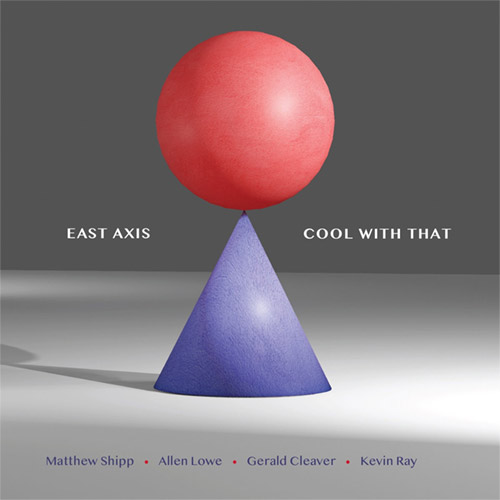



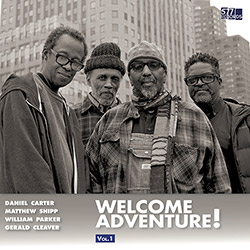
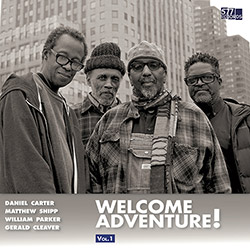

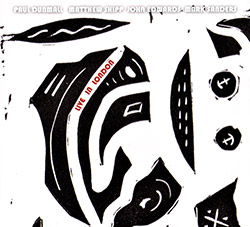
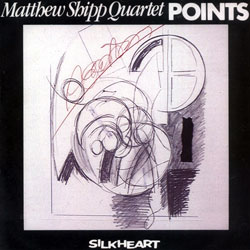
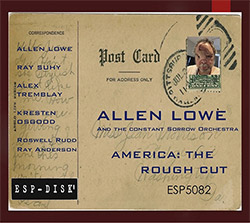

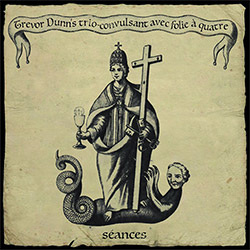
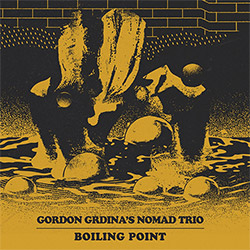
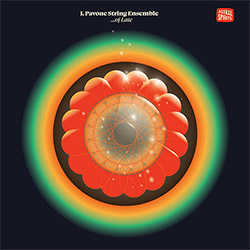

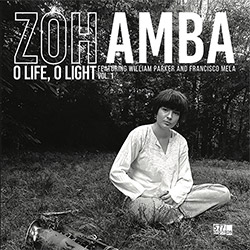
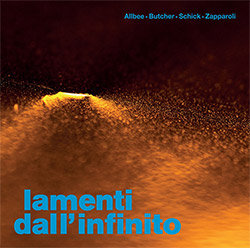


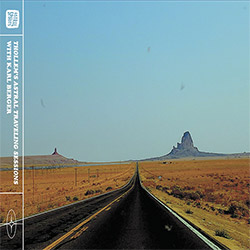
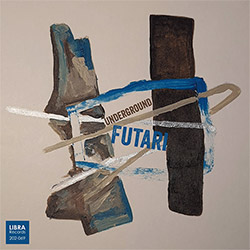



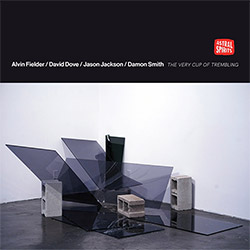
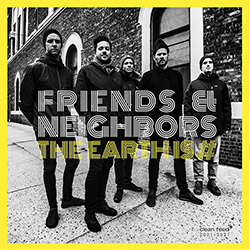
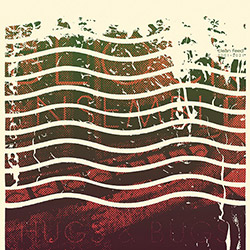


![Guy, Barry / Ken Vandermark: Occasional Poems [2 CDs]](https://www.teuthida.com/productImages/misc4/34849.jpg)
![Novoa / Carter / Mela Trio: Vol.1 [VINYL]](https://www.teuthida.com/productImages/misc4/35236.jpg)


![Elephant9 : Mythical River [VINYL]](https://www.teuthida.com/productImages/misc4/34624.jpg)
![Evans, Peter (Evans / Eldh / Black): Extra [VINYL]](https://www.teuthida.com/productImages/misc4/35279.jpg)

![McPhee, Joe: Straight Up, Without Wings [BOOK]](https://www.teuthida.com/productImages/misc4/35454.jpg)
![Jeck, Philip: rpm [2 CDs]](https://www.teuthida.com/productImages/misc4/35455.jpg)













![Barker / Parker / Irabagon: Bakunawa [VINYL]](https://www.teuthida.com/productImages/misc4/35533.jpg)
![Blaser, Samuel / Marc Ducret / Peter Bruun: Dark Was The Night, Cold Was The Ground [VINYL 10-inch]](https://www.teuthida.com/productImages/misc4/35492.jpg)








![Warren, Kenny (Warren / Hoffman / Ellman): Sweet World [VINYL]](https://www.teuthida.com/productImages/misc4/35451.jpg)




![Blake, Ran / Dave Knife Fabris: Live Amsterdam 2006, First Visit [CD + POSTCARDS]](https://www.teuthida.com/productImages/misc4/35275.jpg)













![DNS: Taking Big Bites Of The Khandas Three Cafes Deep [2 CDs]](https://www.teuthida.com/productImages/misc4/35334.jpg)




![Cleaver, Gerald: The Process [VINYL]](https://www.teuthida.com/productImages/misc4/34966.jpg)




![Alva Noto: HYbr:ID II [VINYL 2 LPs]](https://www.teuthida.com/productImages/misc4/35201.jpg)

![Baron, Derek / Luke Martin: Distinct and Concealed [CASSETTE + DOWNLOAD]](https://www.teuthida.com/productImages/misc4/35079.jpg)

![Lyle, Erica Dawn : Colonial Motels [CASSETTE + DOWNLOAD]](https://www.teuthida.com/productImages/misc4/35080.jpg)









![Sanna, Claudio: Compositori Sardi Contemporanei II [2 CDs]](https://www.teuthida.com/productImages/misc4/35317.jpg)







![Zurria, Manuel: Fame di Vento [3 CDs]](https://www.teuthida.com/productImages/misc4/35167.jpg)

![Granberg, Magnus / Nattens Inbrott / Skogen: Holde Traume, Kehret Wieder! [2 CDs]](https://www.teuthida.com/productImages/misc4/35038.jpg)
![Frey, Jurg: Outermost Melodie [2 CDs]](https://www.teuthida.com/productImages/misc4/35039.jpg)

![Pavone, Jessica: Reverse Bloom [VINYL]](https://www.teuthida.com/productImages/misc4/34895.jpg)




![Modney (Modney / Wooley / Gentile / Roberts / Pluta / Symthe / ...): Ascending Primes [2 CDs]](https://www.teuthida.com/productImages/misc4/34852.jpg)









![Elephant9 with Terje Rypdal: Catching Fire [VINYL 2 LPs]](https://www.teuthida.com/productImages/misc4/35355.jpg)
![Deerlady (Obomsawin, Mali / Magdalena Abrego): Greatest Hits [VINYL]](https://www.teuthida.com/productImages/misc4/34876.jpg)




![Haino, Keiji: Black Blues [2 CDs]](https://www.teuthida.com/productImages/misc4/35109.jpg)



![Surplus 1980: Illusion of Consistency [CD]](https://www.teuthida.com/productImages/misc4/35069.jpg)
![Staiano, Moe: Away Towards the Light [VINYL + DOWNLOAD]](https://www.teuthida.com/productImages/misc4/35037.jpg)



![Caveira (Gomes / Sousa / Abras / Ferrandini): Ficar Vivo [VINYL]](https://www.teuthida.com/productImages/misc4/34643.jpg)
![Gregg, J. J. / David Van Auken: Lunar Prairie [CD w/ DOWNLOAD]](https://www.teuthida.com/productImages/misc4/34611.jpg)

![Coultrain: Mundus [VINYL]](https://www.teuthida.com/productImages/misc4/32439.jpg)
![Mattin: Songbook #6 [VINYL]](https://www.teuthida.com/productImages/misc4/27317.jpg)
![Punkappella: Wake Up [7-inch VINYL]](https://www.teuthida.com/productImages/misc4/17519.jpg)
![Residents, The: WARNING: UNiNC.: Live And Experimental Recordings 1971-1972 [VINYL 2 LPs]](https://www.teuthida.com/productImages/misc4/31521.jpg)
![Coultrain: Phantasmagoria [VINYL]](https://www.teuthida.com/productImages/misc4/30142.jpg)
![Lennon, Sean Ono: Asterisms [VINYL]](https://www.teuthida.com/productImages/misc4/34517.jpg)

![Coley, Byron: Dating Tips for Touring Bands [VINYL]](https://www.teuthida.com/productImages/misc4/17906.jpg)

![Lost Kisses: My Life is Sad & Funny [DVD]](https://www.teuthida.com/productImages/misc4/lostKissesDVD.jpg)